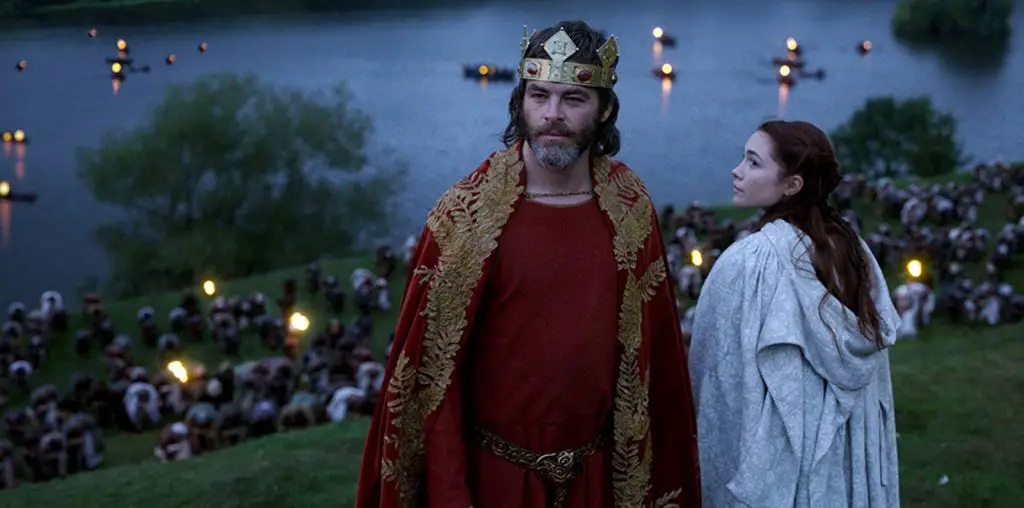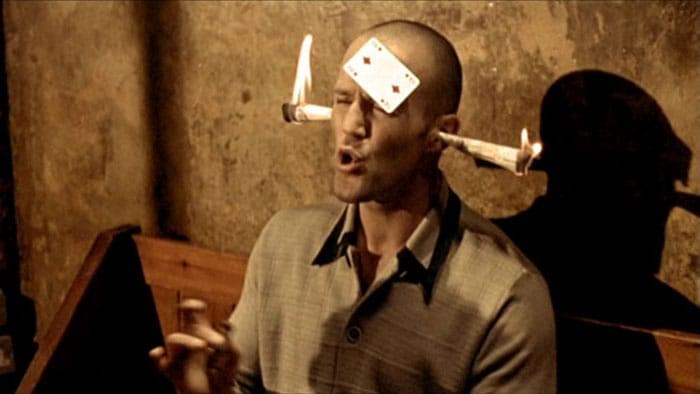
Ned (Lonnie Appleby), his wife Clair (Becky Scholtec) and their baby are on a late-night trip to see Ned’s elderly mother. When their car gets a flat, Ned goes out to fix it and is disrupted by a strange sound in the woods that somehow convinces him to jam the tire jack into his femoral artery. Severely wounded, Ned gets back in the car, but the horrors are only beginning for him and his family.
The next day, local cops find the car, with Clair’s murdered and dismembered corpse next to it. Ned is missing, and so is the baby. The only witness is Jacob (James Lukenbill, Jr); he’s almost catatonic, but offers to show the Sheriff (Ben Rollins) and Deputy (Shawn McAninch) where the baby can be found. Before the cops can head over to the location, a farmhouse, they are joined by a local psychic, Wendy (Annette Duffy), who sees a parallel with the tragedy and other events in the town’s history, and a nosy investigative reporter (Catherine Arabella), specializing in the occult, who also noticed the parallels.
Split up into episodic chapters, Thor Moreno’s feature film Helpless is a collection of sequences that both excel at telling a strong horror tale and alternately come up short. Some episodes are perfectly creepy and mysterious, others are underwhelming.
The film certainly knows how to begin, with the first episode illustrating the strange plight of Ned, Clair and baby in a sufficiently enigmatic way as to make one wonder if we’re watching a ghost tale, werewolf story or something else. It captures your attention, raises the stakes and gives a good burst of energy to the film. This energy carries over into the next part, when the investigation gets underway to decipher what happen to the family, and where their missing baby is. It introduces the characters we’ll be with for the rest of the film, and sets the various pieces in order.
But then we get to roughly the middle section of the film, the investigation of the farmhouse, and everything just falls off into tired horror cliché. When things start going south, regardless of what reasoning the characters come up with on the spot, their actions become repetitive. Maybe because it is daytime, maybe because our mysterious tormentor is seldom seen, it just seems like a lot of spinning of wheels. When Episode Four gets underway, however, developments leap forward in a jolting fashion, but not in a good way. The strange calm of the previous section is contrasted too much by what happens here. All of sudden the film needs to start dealing with all the characters it introduced, and it feels rushed in its efforts to do so.
The final wrap-up, however, is wonderfully unexpected. Maybe a little too “let me explain everything you just saw,” but it nevertheless works. It’s one of those endings that shakes up everything that came before it, and briefly inspired me to re-watch the film. I say “briefly,” because I thought about the drag of the middle section of the film, and changed my mind.
The filmmakers are in a tough spot, however. At sixty-six minutes in length, it’s a feature film, but just barely. To add anything more to it, to sneak it into the seventy minute range, would only heighten the bloat issues of the middle section. Thus, going bigger is not much of an option.
Editing in the other direction however, to eliminate the lack of drive in the middle section of the film, might put the entire experience in an even more precarious position. How tight can you make it, and would that put you somewhere in that No Man’s Land of too long to be a short, too short to be a feature? It’d be a drastic reimagining. But when your opening and closing are your strongest elements, it feels natural to want to compress that middle to keep the narrative momentum consistent all the way through.
Ultimately, though, I recognize the challenges that exist for the filmmakers with this one, and I don’t know that there’s an easy answer (if one is inclined to think there’s a problem; others might love the middle of this film). When I enjoyed Helpless, I really got into it. When I didn’t, it was a lull that easily fell into boredom. The end brings life back to the film, thus leaving a better memory than what immediately preceded it, but the film didn’t sustain itself all the way through well enough for my tastes.
This film was submitted for review through our Submission for Review system. If you have a film you’d like us to see, and we aren’t already looking into it on our own, you too can utilize this service.

